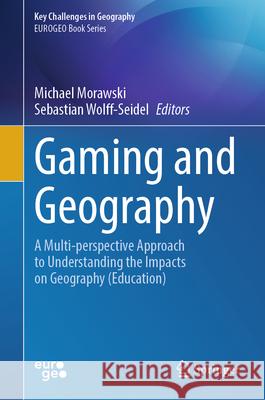Gaming and Geography: A Multi-Perspective Approach to Understanding the Impacts on Geography (Education) » książka
topmenu
Gaming and Geography: A Multi-Perspective Approach to Understanding the Impacts on Geography (Education)
ISBN-13: 9783031422591 / Angielski
Gaming and Geography: A Multi-Perspective Approach to Understanding the Impacts on Geography (Education)
ISBN-13: 9783031422591 / Angielski
cena promocyjna 362,93
(netto: 345,65 VAT: 5%)
725,85
Rabat: -50%
Najniższa cena z 30 dni: 578,30
(netto: 345,65 VAT: 5%)
Rabat: -50%
Najniższa cena z 30 dni: 578,30
Termin realizacji zamówienia:
22 dni roboczych
22 dni roboczych
Darmowa dostawa!
Zobacz inne książki w promocji: Wyprzedaż publikacji z zakresu nauk stosowanych
Kategorie BISAC:
Wydawca:
Springer
Seria wydawnicza:
Język:
Angielski
ISBN-13:
9783031422591











